Drop us a line and say hi!
Whether you have questions about pricing, features, or anything else, our team is ready to answer all your questions.
Digital marketing can help you build your brand and profitability by reaching a larger audience more cost effectively than traditional marketing methods.
Using digital channels, platforms, and technologies, you can build your customer base, trust, and increase retention rates throughout the customer journey. Along with strategic planning, you can market more profitably using data and measuring to guarantee success along the way.
Key activities that work to increasing visibility of a website using, paid and organic methods including:
Your SERPS includes your paid and organic results (sometimes both on a SERP) based on a keyword search, Featured Snippets, Knowledge Graphs, Google My Business (maps), image and video results. This will require advanced skills in:
Search engine optimisation helps you build organic unpaid search traffic to a website or a web page by improving the search rankings of your website. It includes many techniques that improve the quality score of your website and pages including metadata and comprehensive keyword research, internal and external website linking, creating great relevant content for the user, and accessibility.
Basic SEO strategies every business should be employing include:
Your efforts will be well rewarded with consistent content optimisation. You will see your organic ranking building with great content offerings.
Read the 5 things you need to know about SEO for your business or The Ultimate Guide to Local SEO.
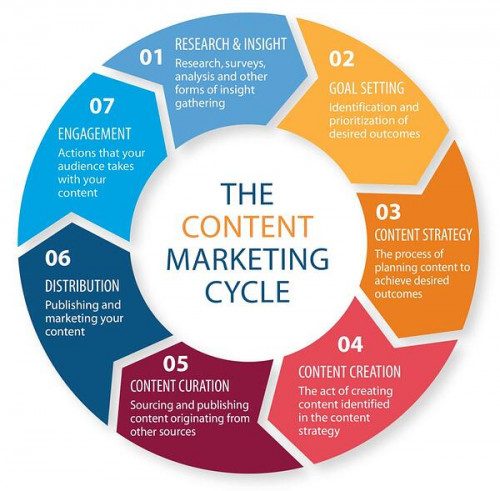
Content marketing is a marketing approach of creating and distributing valuable content to attract and retain a target audience building trust and eventually converting them to customers.
Content strategies include:
Writing Killer Content for your website
Pay-per-click is the easiest, fastest, and generally most profitable way to drive traffic to your business. Search engine advertising is the most popular form of PPC advertising, and with a combination of keyword selection, a great ad copy and a winning bidding strategy, it can bring you great results of relevant customers and inquiries. Google is the world's most popular PPC platform but there are many others to consider that can be much better value for dollar in the Cost-per-click arena.
Several factors will contribute to your success on these platforms: your keyword relevance, landing page quality, quality score and ad copy. How all these factors work together will determine if your ad shows, how often and where in the Ad listing pages they appear.
Social media marketing is the process of creating tailored relevant content for your different social media channels to drive engagement, generate leads, build brand awareness and boost conversions for your business.
The main platforms for social media marketing include (by active users):
You social media strategy should start with:
Social media is a marketing tool that every business should be optimising. You don't need to be on every platform but keeping your message front and centre where your customers are active is an activity that no business should be neglecting.
“Email isn’t dead. It’s one of the few marketing channels we can use to build an authentic connection with the humans that keep our businesses alive.” (Hubspot)
Email marketing is the process of sending emails to build customer loyalty, trust and brand awareness, and build new relationships with potential or existing customers through carefully curated content to a specific audience. It generally uses advertorial quality content to convert the audience to your primary business goal. Building your email marketing list generally starts with PPC and organic channels for acquisition for sign-ups and lead generation funnels (internal link article).
Email marketing strategies include:
Email is proven to be one of the most effective strategies of marketing by building trust and offering great quality content and offerings. Statistics have proven that a well crafted email funnel will not only create new buyers with higher sales, but will provide an avenue for excellent upsells and repeat customers.
Influencer marketing is a type of social media marketing using celebrities and niche experts for product endorsement. Kim Kardashian gets up to $500,000 to share a branded post with her 191 million followers. Kim’s sisters Khloe (64.3 million followers) and Kourtney (54.5 million followers) can earn up to $250,000 per ad on Instagram. (grazia)
Influencer marketing include several different levels:
Aligning your brand with a prominent influencer can lead to incredible exposure, impression and website visitors from well known platforms like Instagram and Tiktok. To get the most out of an influencer partnership, you’ll need to be very clear on your campaign goals, and reporting will be essential to measure your ROI.
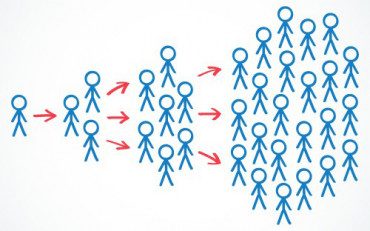
A viral marketing campaign occurs when a post or product spreads at an ever-increasing rate organically by shares in the form of memes, shares and likes, from person to person. The primary content for viral posts are video and images but also include article, software, and web pages. Types of transmission include pass-along, incentive based, trendy, and undercover.
Factors that drive viral content include social value, triggers, emotion, practical value and great stories.
Many factors contribute to the unpredictability of this method but typically include:
The ALS Ice Bucket Challenge was the perfect storm of great celebrity media attention, emotional pull, and trendy activities with Bill Gates, Kobe Bryant and Mark Zuckerberg. It was fun, easy and added urgency with a 24hr limit. ALS managed to raise more than 5 times the amount previously raised from one viral campaign.
Big data sources help you use facts and data to guide your strategic business decisions. This, aligned with your business objective, gives you clear direction, strategy and results. Here are the tools we use for our data based decision making:
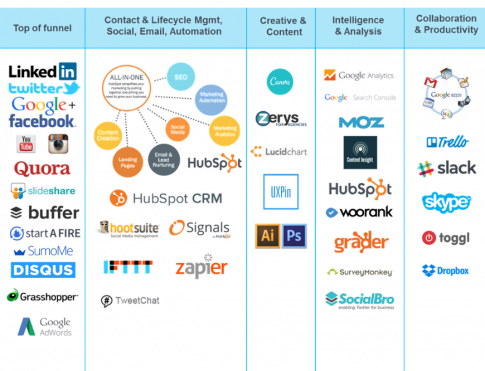
Marketing automation uses software to help businesses manage marketing processes across multiple channels and platforms by automating repetitive tasks like emails, social postings, and advertising.
Leading automation platforms like HubSpot have advanced CRM and workflow capabilities. It uses marketing intelligence to help you manage and grow your business easily and quickly by:
As a Certified Agency Partner, our favourite here at Click Creative is HubSpot. It's a full stack SAAS platform that any business will benefit from including marketing, sales, service and CMS hubs. With years of experience working with this platform, we can recommend how your business can benefit from the many extraordinary features it can offer your business.
“Customer lifecycle marketing (CLM) is an approach to customer communication that recognises that different stages on the journey to becoming a loyal, active customer require different marketing messages and strategies." - Ometria, Ecommerce analytics software
CLM and Inbound marketing are inextricably bound together by using valuable content to attract, engage and delight its customer base. It’s focus is based on the creation and distribution of relevant content - drawing new and existing customers into your business lifecycle marketing strategies.
It looks something like this:
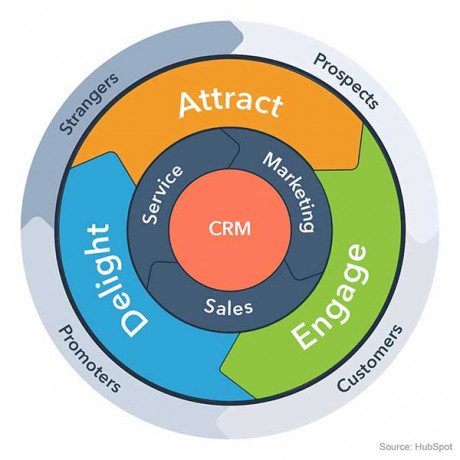
Strategies include:
At each phase of the journey, you are providing custom content that drives them to the next phase building trust and genuine value into the relationship at every stage. Customers that feel valued will become your greatest advocates.
Read more about how we use Hubspot for our clients here at Click Creative
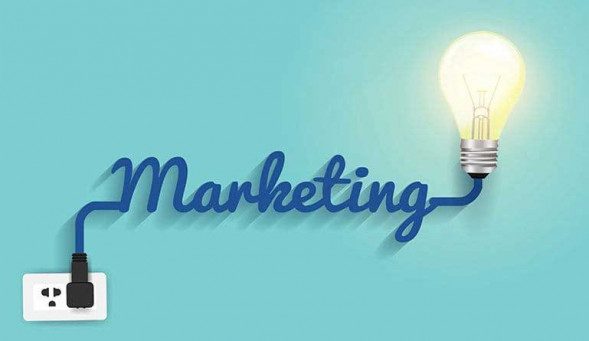
Every business will benefit greatly from taking on a few low hanging digital marketing tasks. Refreshing old content, re-engaging by email with past clients and a quick offer can be enough to fill your sales book again. Here are the digital strategies that your business should be engaging in, either in-house or through an agency.

Digital Marketing tools and strategies vary greatly between business sectors. These include:
Your business is reliant upon a successful marketing strategy. The cost and effort of assembling an in house marketing team can be greatly reduced by using a digital marketing agency. Having experts in every area on your team ensures your campaigns are running smoothly and profitably. Helping you understand key metrics and reporting ensures you're spending your marketing budget with the best ROI possible. The value of using a digital agency for your business will allow you to focus on what you do best.
Building your brand and eCommerce marketing solutions is a big challenge for SMEs. You need to realise the best ROI for your budget. Assembling a range of services together that cover some of your marketing weaknesses can be the best strategy out there. Pick, choose and test your ideas with a team that will get you the best results in traffic, brand building, eCommerce solutions.
Creating the best multi platform customer experience is the key to success. Your users want a simple process that delights along the way. Using Intelligent data and AI will lead to bigger overall spends, more return customers, and advocates for your business.
We recommend these practices:
For more about eCommerce strategies read The Ultimate Guide to Building Your eCommerce Website.
Digital marketing for technology seems like it would take care of its own, but that's not always the case. Technology companies need to distinguish themselves amongst their community. It's not always about the best and fastest. Customers are looking for the values that go along with their product. Big tech needs a new story.
Strategies include:
Starting lean and growth strategies are the most important techniques to focus on. Building fast and learning quickly with instant scalability are key.
Using these strategies will boost your launch, build and grow quickly:
Digital marketing is hands down the easiest way to increase your website traffic and drive sales. It’s far less expensive than traditional methods, has as much higher ROI, and it’s data driven. Digital marketing tools allow us to scale and adapt easily to leverage current trends in browsing, shopping and marketing. It is also highly measurable.
How your business grows matters. Choosing the best solutions and strategies for the long term growth of your business to build traffic and engagement throughout the customer lifecycle is a decision that will mean everything to your future growth and success. Take the time to decide what is right for your business, whether that's marketing in house or using a digital marketing agency. Planning is the key to your bottom line.
If you’d like to know more about our digital marketing services and packages we would love to hear from you.